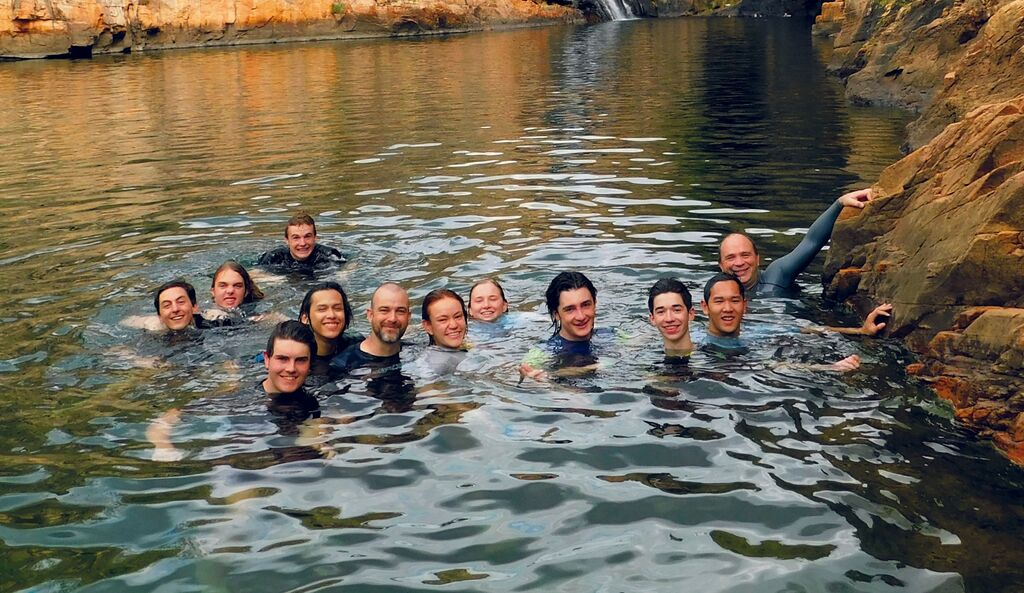11 November 2019
The challenge is presented in the most fabulous ways. To sit down and weave with Traditional Owners on country disarms and unpacks biases, centres thinking and builds knowledge.
To learn to weave is to learn to preserve, apply effort, appreciate an ancient skill and listen. A simple bracelet, made from local pandanus and dyed with the roots of a kapok tree, has a different value when made by hand under the watchful eye of an Elder.
Understanding a society is often best achieved by sharing food. Magpie goose and whistling duck cooked over coals is a different, exciting experience, yet a great opportunity to find connections.
Discussion on the similarities and differences in preparing and sharing food across cultures and borders sets the scene for a truly memorable lunch. We live with fire in Australia. Rightly, we look towards the hill with apprehension on those blustery 40° days when a trail of smoke appears. Yet, is there variability in this observation?
To walk the country with a Country man provides a compelling case. Knowledge from generations in the making unpacks the intricacy of land management—how best to manage the land to promote and safeguard biodiversity, preserve its ecological health and continue to provide for its people? When is the best time to set fire to the bush to stimulate growth and maintain it for the future? These questions become central to the Environmental Systems and Societies course—how ‘best’ to do something. How will my actions now influence my future? Is there another way?
And what of climate change? How will the wetlands adapt? Will they adapt? Kakadu has six seasons, immaculately understood, carefully explained and precise. A warming atmosphere provides a challenge to a seasonal system that has been defined through generations of knowledge—perhaps it is more than ‘parts per million’?
The art at Nourlangie Rock provides perspective and causes a pause, a chance to consider long-term connection to place. Positive interactions with place provide value. Dawn on Yellow Water is a time to behold grazing buffalo and crocodiles looking for the first rays of the day. The azure kingfishers’ first meal is a highlight of a morning on the water of the South Alligator River.
Equally, a plunge into the deep, cool pools of Maguk Gorge is a worthy treat after the sweat, dust and effort of good fieldwork. To share it with friends is a bonus. How do you leave a place such as Kakadu? A final night around a campfire among the paperbarks, chatting, fishing, considering the place. Kakadu provides an opportunity to challenge a bias, check your values and appreciate diversity.
Andrew Quinn
Trip Coordinator



